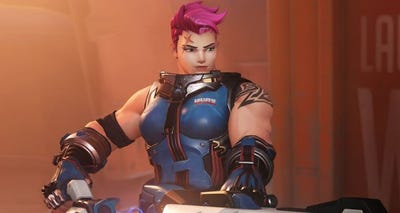
Featured Blog | This community-written post highlights the best of what the game industry has to offer. Read more like it on the Game Developer Blogs.
With Overwatch's open beta weekend come and gone, we finally have a glimpse at how Blizzard's Hero Shooter will impact the esports playing field.

Overwatch’s open beta this weekend wasn’t my first chance to check out Blizzard’s new hero shooter, but it was my first chance to see how the game ran in a home environment, and how it would play teaming up with people I knew. The result was something surprising. Going in as a group of 5, with 3 players I normally play League of Legends with, I was suddenly confronted by just how quick Overwatch games can be, and how that may help shift the long-term growth of eSports-affiliated games. What I'd thought would be another average shooter-length set of games turned into a display of rapid-fire team composition testing, with games only reaching their full 8 minutes under specific circumstances.
Since, to the best of my knowledge, no other eSports titles run that quick, I realized this may wind up being one of Blizzard's key innovations in competitive gaming, if it leads by example.
Overwatch’s general esports favorability
Blizzard’s made clear from the get-go that their intention is for Overwatch to join the ranks of their own Starcraft II in esports competitive play, and it’s been fun to watch their typical polishing process really highlight what separates a general multiplayer game from a competitive one. The scoreboards, the post-play highlights, the striking and cosplayable character design, all of these are slick and as easy to parse as gameplay, where audio and visual cues alike reliably communicate what sort of battle is happening when.
These features have also begun showing up in Battleborn and Paragon, but both games still look to the objective-focused MOBA genre as a basic template. Overwatch, conversely, uses the point-capture, king of the hill, and attack/defend maps of Team Fortress 2 for inspiration. Here, in the objective and map design, is where the game gains its definable speed. Players arrive at objectives quickly, are able to move and defend them with varying ease, and short time limits keep the game from stretching out too long or dragging into overtime.
In Team Fortress 2, the varying maps have long been infamous (and for some, enjoyable) for not being afraid of being somewhat grindy. A 9 minute counter on attacking point A gives offensive players plenty of time to overwhelm a stalwart defense from opposing players, and helps opposing players gain a sense of satisfaction for building and maintaining an iron wall as long as they could. And if point A collapses, point B may have yet another 9 minute timer, and just as many grinding choke points.
Overwatch does not aspire to grindiness in the slightest. Teaming up with 5 players in a group call, I was stunned at how quickly we shot through game after game. Even the slightest amount of communication changed the stakes from a disorganized group of individuals into a coordinated unit, and a relatively stable team composition played to all of our respective advantages and experience. Our games weren’t spent constantly throwing ourselves (on most) of objectives, we were able to effectively move together as a unit and execute a strategy well within the 4-minute time limits of a match. At one point, we finished a match in a mere 90 seconds.
Given these differences, it’s easy to say a fast game in Team Fortress 2 would be considered a steamroll, but in Overwatch, it’s par for the course.
So what does this mean for other esports?
Right now, I’d wager that Overwatch matches have the potential to be the fastest matches in professional esports. DOTA and CS: Go pro games still occasionally climb over an hour, League and Heroes of the Storm matches will run at least 15-20 minutes, longer if it’s a tighter game. Halo matches will run up to 12 minutes, (and the new objective-based battle mode from Halo 5 even longer), and Paragon and Battleborn will have to commit to MOBA-length matches since they’re committing to MOBA mechanics.
Which leaves Overwatch as one of the fastest games in the field. I don’t expect this to mean tournaments will be so short they’re only 30 minutes long, but that organizers and players will be adapting to playing many, many rounds over the course of a competitive event. The immediate comparison that jumps to mind is professional basketball, a game where players spend far more time scoring points and looking for big play after big play rather then grinding out the long hauls of football, soccer, or baseball.

And just as basketball carries its own identity in the world of traditional professional sports, Overwatch’s speed will help grant its own identity in the current competitive games space, and likely influence the design of future games vying for a competitive eSports audience. With Overwatch’s popularity looking increasingly likely, (SteamSpy noted a dip in major multiplayer games on Steam during the free weekend), its permanent presence will likely drive newer eSports titles to seek shorter runtimes then what we’re used to, as the space is now likely open for at least one, if not several other faster-paced eSports games.
Now, does this mean I think any of the major eSports titles should speed up their matches? Definitely not, at least not for now. Riot’s done some tweaking of its death timers over the last year to try and keep League matches closer to 20-30 minutes, but it’s still a game that benefits from long matches where an underdog team can survive to endgame and pull off a close shave of a victory. eSports audiences probably aren’t hoping for faster matches yet, but I won’t be surprised if the new fans Overwatch brings do in the future.
Read more about:
Featured BlogsAbout the Author(s)
You May Also Like








